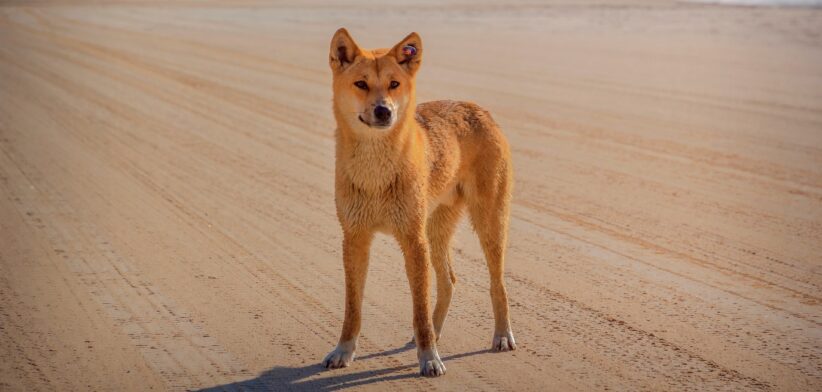DNA analysis has confirmed the dingoes of K’gari have no links to domestic dogs and are part of a 3000-year-old lineage.
A joint QUT–University of Adelaide study of ancient dingo DNA has revealed the distribution of modern dingoes across Australia, including those on K’gari, pre-dated European colonisation and interventions, like the dingo-proof fence.
Dr Sally Wasef, a paleogeneticist from QUT’s School of Biomedical Sciences said the research team generated a first-of-its-kind collection of 42 ancient dingo specimens, dating from 400 to 2746 years ago, and compared the data with DNA from modern dingoes, as well as ancient and modern dogs worldwide.
Dr Wasef said this dataset gave a rare glimpse into the pre-colonial genetic landscape of dingoes, free from any mixing with modern dog breeds.
“Consequently, they are behaviourally, genetically, and anatomically distinct from domestic dogs,” she said.
Dr Wasef said modern-day dingoes’ ancestors arrived in Australia more than 3000 years ago, most likely transported by seafaring people.
“The samples we analysed represent the oldest ancient DNA recovered in Australia and indicate broad possibilities of future DNA and conservation work that could be carried out on dingoes and other animals.
“Dingo populations are classified into east and west groups which were previously thought to have formed during post-colonial human activity.”
She said the findings showed, however, that dingoes’ population structure was already in place thousands of years ago and clarified the genetic heritage of dingoes, while highlighting the importance of using ancient DNA for wildlife conservation.
“For example, all K’gari dingoes we analysed do not have any domestic dog ancestry, proving they preserve their full ancestral heritage.
“Our findings highlight the importance and usefulness of our pre-colonial ancient genomic data to conserving our unique native animals.
“Due to poor human behaviour that causes some dingoes to become habituated to seeking food from tourists, several problem dingoes have been culled, which is concerning given their small population size.”








